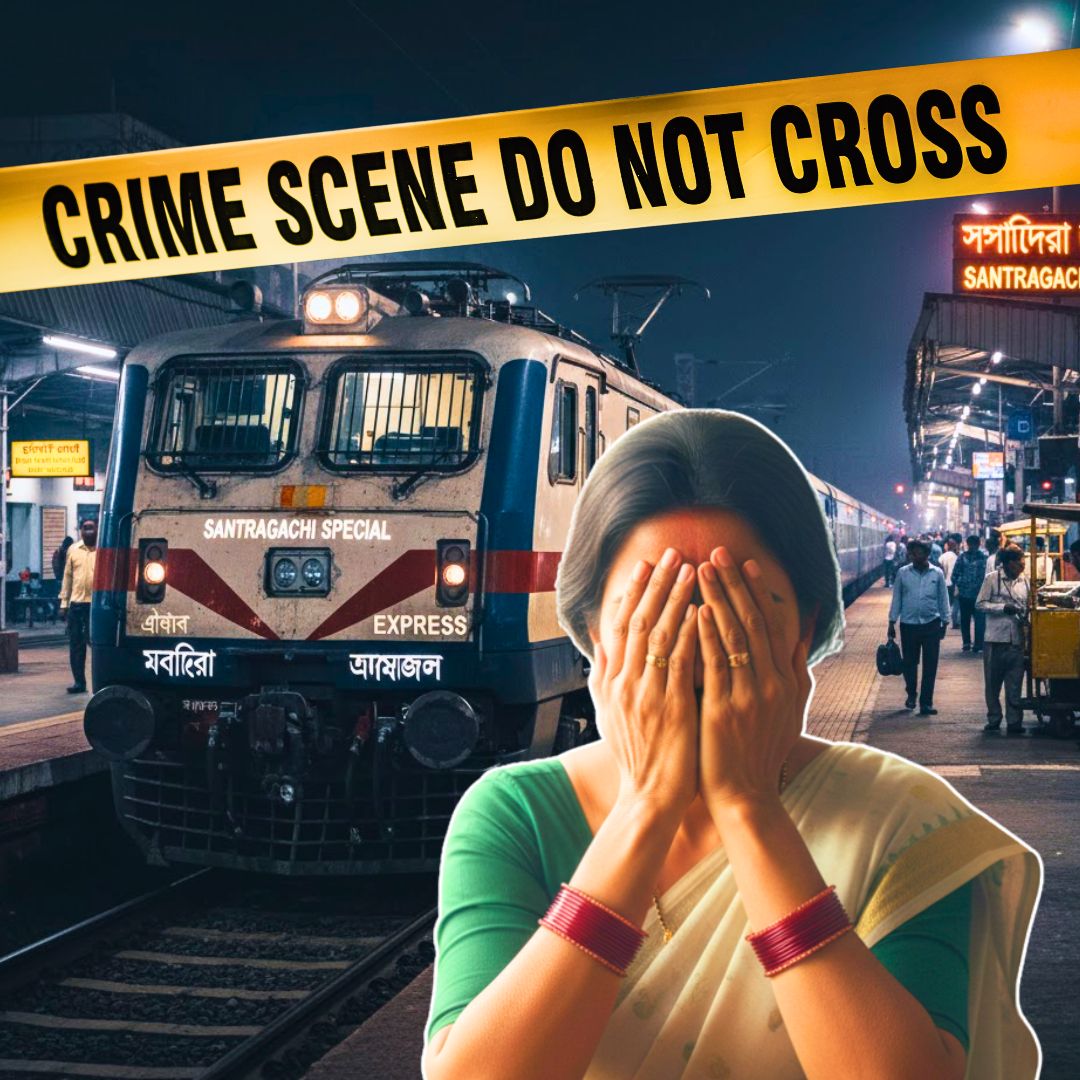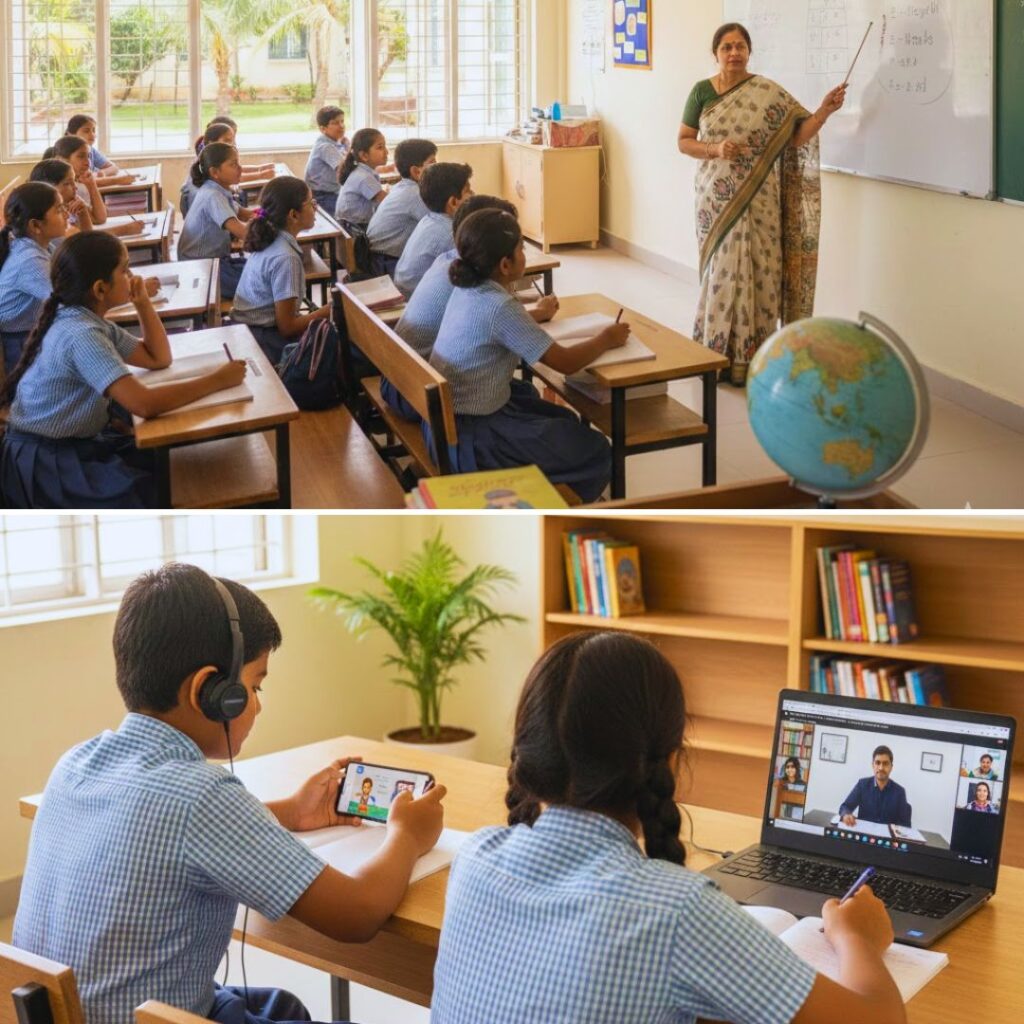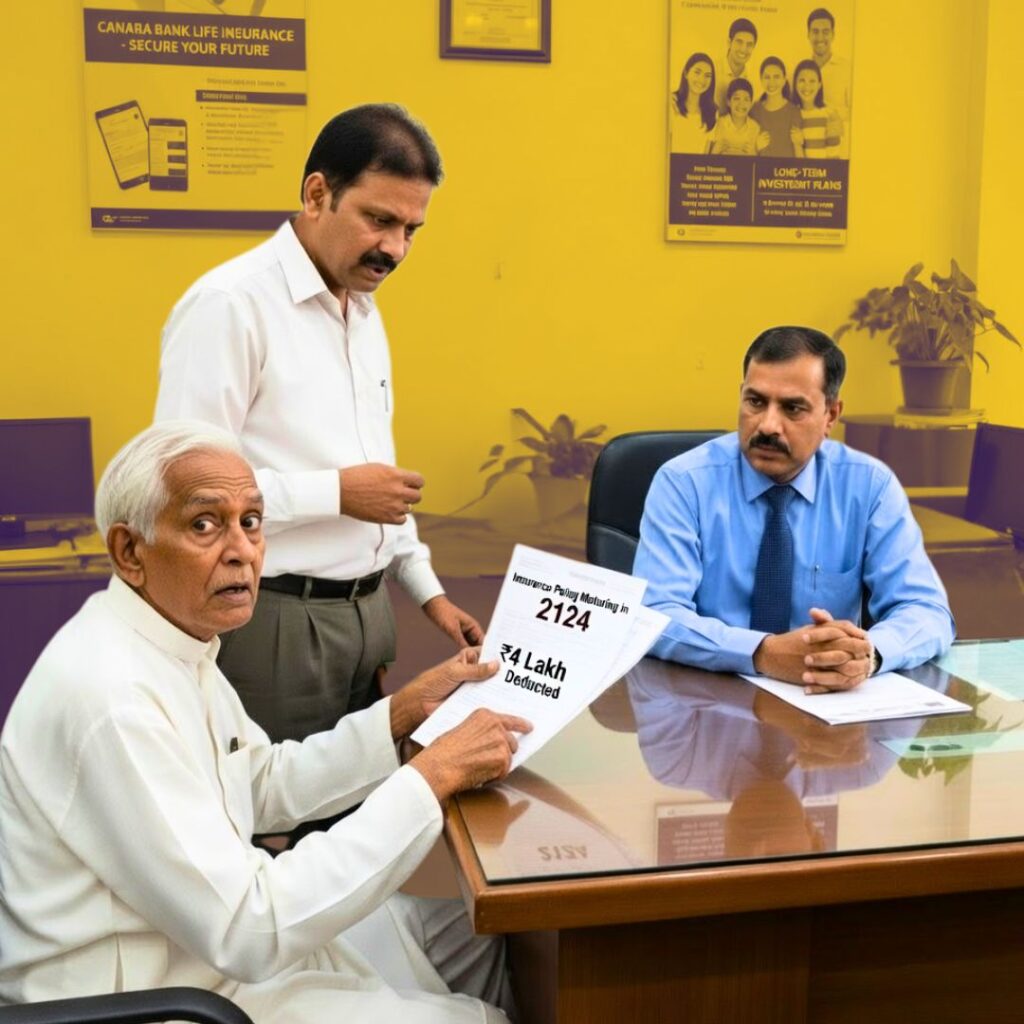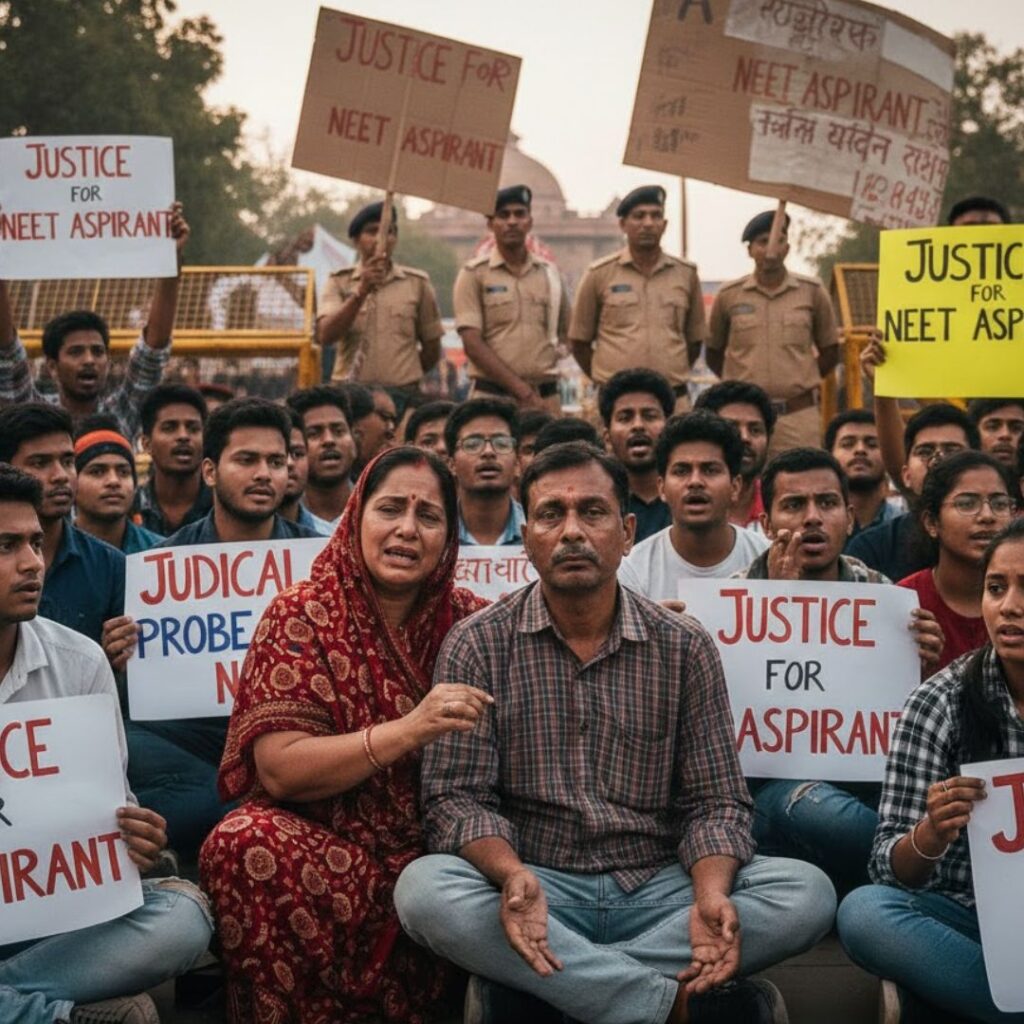A 35-year-old woman from Rajamahendravaram in East Godavari district was allegedly raped and robbed at knifepoint aboard the Santragachi Special Express while travelling between Guntur and Peddakurapadu railway stations on the night of October 13, 2025.
The suspect, an unidentified man around 40 years old, escaped by jumping off the moving train near Peddakurapadu. A Zero FIR has been registered, and authorities are actively pursuing the accused.
Incident Details
According to the victim’s complaint and police reports, the woman boarded the Santragachi Special Express at Rajahmundry station to travel to Charlapally for work. She was travelling alone in the ladies’ coach. When the train halted at Guntur station around 7:05 pm, a man, described as short in build, wearing a black shirt and grey trousers and carrying a bag, approached the ladies coach.
Despite the victim informing him that the coach was meant for women only and trying to lock the door, the man convinced her to open it. He then entered and closed the door from inside.
As the train moved between Guntur and Peddakurapadu, the accused allegedly threatened the woman with a knife, physically assaulted and sexually assaulted her. He robbed her of Rs 5,600 in cash and her mobile phone. When the train reached near Peddakurapadu Railway Station, the man jumped off and fled the scene.
The woman continued her journey to Charlapally and lodged a complaint with the Government Railway Police (GRP) in Secunderabad. Based on the complaint, a Zero FIR was registered, and the case was transferred to Nadikudi Police Station in Andhra Pradesh for investigation.
Official Responses and Investigation Progress
The Guntur Railway Police confirmed the incident and reiterated that efforts are underway to apprehend the accused. Inspector P. Ramesh of the Guntur Railway Police said, “A Zero FIR has been registered and is being transferred to the police station having jurisdiction over the incident site.”
Railway Protection Force (RPF) officers stated they are examining CCTV footage from the train and stations to gather evidence and identify the suspect. Police teams have been deployed along the train route and nearby areas to trace the man’s whereabouts.
Railway officials also admitted to gaps in the existing security framework, acknowledging that routine patrols and surveillance were insufficient to prevent the attack. Talks have begun on increasing the deployment of women officers onboard and upgrading CCTV systems, especially in ladies’ coaches, to discourage such incidents.
Safety Concerns
This harrowing case spotlights the vulnerability women face during train journeys in India, especially in women-only compartments that should ideally offer safety and privacy. Over the years, cases of harassment and assault on trains have exposed systemic weaknesses, including poor lighting, inadequate security personnel, and insufficient monitoring.
According to National Crime Records Bureau data, crimes against women in public transport have shown erratic increases, with railways being a reported hotspot. Despite recent government efforts to improve railway security, gaps remain, particularly in remote or less patrolled segments. The Ministry of Railways has proposed reforms including more comprehensive CCTV coverage, use of advanced technology for monitoring, and increased female representation in railway protection forces.
Civil society advocates urge a multi-pronged approach encompassing stricter law enforcement, timely victim support, and robust preventive infrastructure.
The Logical Indian’s Perspective
The Santragachi Special Express incident tragically underscores the ongoing safety crisis for women using public transport in India. Women’s security cannot be relegated to mere policy promises; it demands urgent, effective action encompassing technology, policing, and community awareness.
The seamless collaboration between railway authorities, law enforcement, and passengers is vital to create spaces where dignity and safety are non-negotiable.
At the heart of this issue lies the society’s collective responsibility to protect and empower women and to foster environments free of fear and violence. Solutions must be empathetic, inclusive, and persistent.












